How to Earn Ivy League Credentials Without the High Price Tag
KEY INSIGHTS:
- Working professionals can bolster their resumes with an Ivy League certificate program
- Options range from lower cost, self-paced courses to more expensive long term programs similar to traditional degree models
- Application requirements, small class sizes, and direct support from instructors often signal higher academic quality
- Hands-on skills and networking opportunities will increase the value for professionals, especially in business, tech, and STEM
In our rapidly evolving economy, professionals are continuously looking for highly regarded credentials and ways to upskill that fit their budget and schedule. A recent survey by Strada Education Network found that more than two-thirds of adults without degrees who are considering education prefer non-degree options over the traditional higher education pathway.
As the number of working professionals seeking new credentials continues to grow, higher education institutions are beginning to diversify their program offerings. Some elite colleges have been quick to adopt flexible online programs designed for working professionals.
Many professionals don’t have the time or money to pursue a degree at an Ivy League school, but they can often use online certificate programs to add an elite education to their resume in less than a year, sometimes for a fraction of the cost of a degree.
Short-term non-degree programs provide alternative credential options to those without the time or money to earn a degree. They also allow professionals to gain targeted skill sets for specific roles that complement their current experience and education. This guide will help prospective students navigate the options available and find one that fits their needs.
Quality Assessment
In our program evaluation, we focused on fully online certificate programs offered by Ivy League and elite colleges. We did not include programs offered through MOOCs or on platforms such as Coursera or edX. We also did not include programs that are temporarily offered online due to COVID-19.
To evaluate program quality, we considered cost, application process, prerequisites, class sizes, skills gained from the program, learning format, and delivery method. In general, smaller class sizes, high instructor involvement, and at least some application and prerequisite requirements all signaled higher academic quality.
Programs with no application requirements, open enrollment, or self-paced formats are often offered at a lower cost but may mean students get less support from instructors. While this learning method works for many and may be worth it for some professionals, others may want a more competitive and structured program. Students should also consider whether classes provide networking opportunities, especially in business or technology programs.
Ivy League Schools
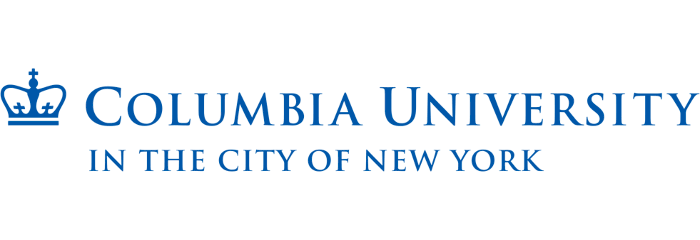
| School | Application Requirements | Credential Prestige | Tuition | Example Topics |
|---|---|---|---|---|
| Fu Foundation School of Engineering and Applied Science | Undergraduate degree, usually in a related field | High | $28,037 for most programs | Mathematics, business and technology, financial engineering, computer science, environmental engineering |
| Columbia University School of Professional Studies | Undergraduate degree GRE for some programs | High | Narrative medicine: $10,000 All others: $27,192 | Actuarial science, bioethics, enterprise risk management, narrative medicine, sustainable finance |
| Columbia Business School | Applicant must match “participant profile” for each course | High | $450-$8,250 per course, offers free webinars | Leadership, finance, marketing, social enterprise, strategy, comprehensive management |
| Teachers College | Graduate degree RN license/doctorate for nursing education | High | $21,216-$31,824 | Nursing education, Advanced diabetes topics, college advising |
Columbia University has a wide range of online certificate programs with fairly flexible schedules, mainly in engineering and business. The Fu Foundation School of Engineering and Applied Science offers graduate-level online certificate programs in fields such as applied mathematics, computer science, civil engineering, electrical engineering, financial engineering, data science, and business and technology. Most certification programs in engineering require that students hold a bachelor’s degree in a related field. Coursework includes four classes in a specific field, and each certificate costs $28,037 in total.
The Columbia University School of Professional Studies offers online graduate-level certificate programs in actuarial science, bioethics, enterprise risk management, and narrative medicine. Students must hold a bachelor's degree to apply and can complete their credentials in less than a year if enrolled full-time.
Through the Columbia Business School’s Executive Education Program, prospective students can earn a customized business excellence certificate that meets their educational needs. The certificate program requires students to complete 18 credits over four years and offers asynchronous and synchronous course options. The Executive Education program offers online courses in leadership, social enterprise, finance, strategy, and marketing that last anywhere from one day to four months. This certificate program is highly customizable and flexible but may be more expensive than other options depending on which courses students select. Networking opportunities may increase the value for professionals.
Takeaway: Columbia is known for being highly selective, and the application requirements for these programs likely increase the value of the credential. However, most programs cost upwards of $25,000. While the weight of an Ivy League credential may be worth it at this rate, there are more affordable options available in these fields. Some programs are also offered through the third-party learning platform Emeritus, which means student support may come from Emeritus rather than Columbia faculty. Unless someone is seeking a particular credential only available through Columbia, high costs may turn professionals to other avenues.
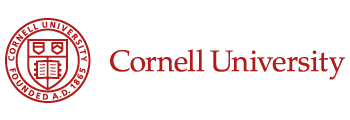
eCornell, the university’s online portal, provides more than 120 online certificate programs for professional development and gives some of the most flexible online options for Ivy League credentials.
Prospective students can choose from certificate programs in marketing, data science, technology, leadership, project management, human resources, business and finance, hospitality, healthcare, engineering, nutrition, and even beekeeping.
Many of the certificate options focus on integrating industry-specific skills from certain fields into careers in other sectors. For example, the Marketing AI and Marketing Analytics programs teach professionals how to implement technology and data in their marketing strategies.
The hospitality certificate programs are an excellent opportunity for working professionals to earn credentials from the highly ranked Cornell School of Hotel Administration at a significantly lower rate.
Programs last anywhere from five weeks to 18 months, although most are two to four months long. Students can expect to put in around three to five hours per week on coursework. The virtual format is instructor-led, and class sizes are capped at 35 students. Most programs cost $3,600.
Prospective students considering programs in data science, computer science, technology, or related fields may be interested in Cornell’s affordable options. Tech bootcamps can cost upwards of $10,000, but eCornell offers lower-cost programs for people who are only seeking one targeted skill set rather than a comprehensive education.
Takeaway: Cornell offers professionals many opportunities to gain specific knowledge and credentials tailored to their needs. There is no application process or prior education requirement for most certificates, which may lower the credentials' prestige. Overall, these certificates will likely be better for learning hands-on, applicable skill sets than using the credential as a resume booster. Those considering certificate programs from eCornell should evaluate how useful the program will be for their career, available networking opportunities, and whether or not an Ivy League credential is worthwhile in their field.
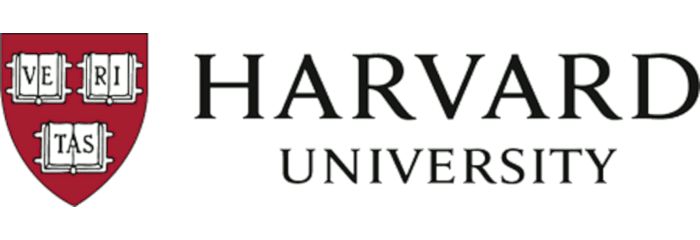
| School | Application Requirements | Credential Prestige | Tuition | Example Topics |
|---|---|---|---|---|
| Harvard Extension School - Undergraduate level | None | Medium | $5,640 | Coding, web development, professional communications, social justice |
| Harvard Extension School - Graduate level | Prior experience for some programs | Medium | $8,700-$14,500 | Digital storytelling, learning design and technology, international relations, finance, nonprofit management, environmental policy, web development, cybersecurity |
| Harvard Business School | None | Medium to high | $2,250 | Credentials of Readiness (CORe) program: business analytics, economics for managers, and financial accounting |
Harvard has an established presence in the online learning space. Their free online courses gained popularity at the start of the COVID-19 pandemic when many people were on state-ordered lockdowns and seeking online learning materials at home.
The Harvard Extension School offers fully online graduate certificates in various fields, including education, sustainability, life sciences, technology, and business and management. These certificate programs take around one to two and a half years to complete, depending on how much time students can dedicate to their studies. Programs are composed of three to five courses and must be completed within three years.
For educators who currently hold a bachelor’s degree, short-term programs in math leadership or religious studies and education may be an affordable alternative to a master’s degree. The learning design and technology program may be particularly appealing as online learning expands and can help teachers become more effective educators in the online space.
The extension school also offers four undergraduate certificates in coding, web development, professional communications, and social justice. Each program comprises three courses, takes about one year to complete, and costs $5,640. There is no application process, and students may be able to use these credits towards an undergraduate degree down the road as well. The coding and web development programs offer an introduction to different aspects of technology jobs and teach hands-on skills in high demand in the job market.
Harvard’s certificate programs offer an appealing option for working professionals who want to earn affordable credentials in a flexible setting. There are no application requirements, and students can simply enroll during registration periods and begin pursuing courses.
The Harvard Extension School also offers career services through the Career and Academic Resource Center. Students have access to online webinars as well as monthly one-on-one career counseling options over the phone. While federal student aid isn’t available for these certificate programs, students may qualify for scholarships to cover education costs.
Takeaway: The undergraduate certificates may be a good option for students who want some experience in the field but are not ready to commit to a longer and more expensive program. However, it is not likely that these credentials will benefit students as much as earning an associate or bachelor’s degree.
Many of the graduate programs could help students advance their careers or gain targeted skills necessary for a specific role. There is no application process, and certificates are issued by the Harvard Extension School rather than Harvard itself, which may make the credential less prestigious. However, these programs are lower cost, flexible, and offered in a wide variety of fields, which makes Harvard Extension School a strong alternative education option. Still, these credentials will likely only be worthwhile if the skills are relevant to specific career goals or offer hands-on experience.
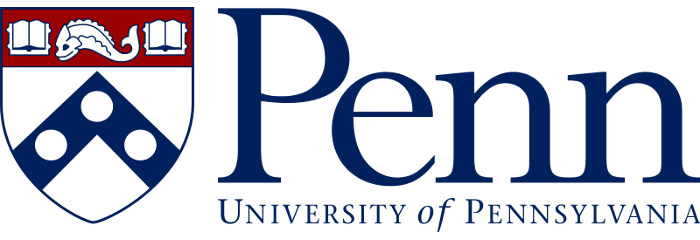
| School | Application Requirements | Credential Prestige | Tuition | Example Topics |
|---|---|---|---|---|
| Wharton Business School | None | Medium to high | $537.30-$3,900 | Leadership, digital marketing, strategic management, asset and portfolio management |
| College of Liberal and Professional Studies (Penn LPS) | None | Low | $9,728-$14,592 | Positive psychology, data analytics, organizational anthropology, professional writing |
| Penn Nursing | Must be a nurse practitioner who works with acutely ill patients | High | $19,002 | Adult gerontology acute care |
| Penn Vet | Bachelor’s degree | High | $14,000 | Animal behavior |
| Penn School of Social Policy & Practice | None | Low | $159 | Organizational leadership for social workers |
Prospective students have access to several different programs through the Penn Online Learning Initiative at the University of Pennsylvania. Perhaps most notably, the world-renowned Wharton Business School offers professional certificate programs in digital marketing, strategic management, asset and portfolio management, and leadership and management through Wharton Online. Programs are self-paced, and students can expect to put in between two to eight hours per week, depending on the course.
The College of Liberal and Professional Studies also offers online certificate programs in psychology, climate change, creative writing, data analytics, leadership and communication, neuroscience, organizational anthropology, and professional writing. Most programs include four courses, although students can add two more for an advanced certificate in certain programs. Classes are primarily asynchronous, enabling students to complete assignments at their convenience.
The data analytics certificate courses include weekly synchronous meetings, which may work better for students learning hands-on tech skills, especially if they are new to the field. The leadership and communication program also incorporates weekly meetings at a set time in some classes. UPenn charges $9,728 for most programs.
There are a handful of other professional certificates available online through different colleges at Penn, including two offered for social workers through the School of Social Policy & Practice, a medical ethics and health policy certificate program through the Perelman School of Medicine, and an online graduate-level certificate in animal welfare and behavior through PennVet.
Takeaway: The opportunity to tout credentials from the Wharton Business School for less than $5,000 will likely draw students. The digital marketing and leadership programs can benefit a wide range of professionals in many sectors. The strategic management and asset management courses are more narrow in scope and may benefit professionals who work in finance or hold leadership roles in business.
Online programs offered by the University of Pennsylvania are flexible and accessible. Most have no prior education requirements, which may make credentials less prestigious. Most of the credentials from Penn LPS will likely not be as useful in the job market. However, the certificates in leadership and communication, data analytics, and professional writing teach hands-on skills that could be useful in a range of positions.
Elite Colleges and Universities
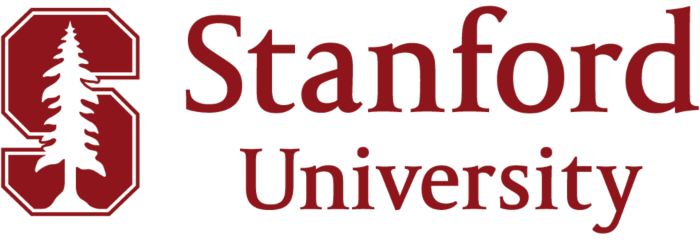
| School | Application Requirements | Credential Prestige | Tuition | Example Topics |
|---|---|---|---|---|
| Graduate School of Business | Professional background information, essay, recommendation letter, and video interview recording | High | $19,000 | Stanford LEAD |
| Stanford School of Engineering | Varies depending on the program Undergraduate degree for graduate certificates | High | $1,180-$8,035 for professional programs $12,168- $33,800 for graduate certificates | Artificial intelligence, energy innovation, computer security, digital transformation, financial analytics |
| Stanford School of Humanities and Sciences | Undergraduate degree Prerequisites vary | High | $12,168-$27,040 | Statistics, data mining |
| Stanford School of Medicine | Programming experience and bachelor’s degree for the biomedical informatics certificate | High | $374-$3,445 for professional programs $12,168-$27,040 for graduate certificates | Medical statistics, genetics, epidemiology and clinical research, biomedical informatics |
Stanford’s online certificate courses may be a good option for those seeking a more selective graduate-level education similar to the traditional degree path. Stanford follows the academic quarter schedule and does require an application, making its online certificates more closely aligned with traditional education options than online courses at other schools. Prospective students can find a full list of online programs in Stanford’s easy-to-use online search catalog and filter search results by topic, credential, and delivery option.
Stanford’s School of Engineering offers a wide range of graduate certificates in software systems, artificial intelligence, biomedical engineering, biotechnology, chemical engineering, cybersecurity, computer science, and financial analysis.
The Stanford School of Medicine also offers a biomedical informatics program focused on data analysis in the medical field that may benefit professionals who work with healthcare technology. The epidemiology and clinical research program is designed for those who work with research and data in the medical field and could be a useful credential for students considering medical or public health school.
All graduate certificates require a bachelor’s degree. Some also have specific course prerequisites or foundational knowledge students need to know before enrolling. Most programs take one to two years to complete on average, but students often have up to three years to finish coursework.
Online students from all over the world have the opportunity to receive a high-quality education through the esteemed Stanford Graduate School of Business. Stanford LEAD provides a flexible learning option for business professionals to expand their leadership skills and implement business frameworks in their current roles. Prospective students must go through an application process, which may be somewhat competitive. The program includes nine courses over one year and requires around 5-10 hours of work per week. Students are able to choose electives that fit their professional needs, and collaborative course projects will likely offer networking opportunities for students in the program.
Takeaway: There are many different opportunities for professionals to earn credentials through Stanford Online. The wide variety of options, costs, and prerequisites for programs show a balance of quality and accessibility in programs.
The professional programs are fairly low-cost and are concentrated mainly in STEM fields. These are likely a good option for students seeking targeted, hands-on skills. The graduate certificates offer more topics, fields of study, and specific skill sets that may be more useful for professionals in particular industries, such as tech. These programs are more expensive and will likely only be worthwhile for those with specific career goals.
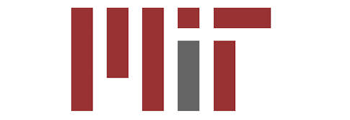
| School | Application Requirements | Credential Prestige | Tuition | Example Topics |
|---|---|---|---|---|
| MIT Professional Education | Professional background information, essay, professional recommendation, video interview | High | Professional certificates: $12,900-$15,100 Other programs: $950-$2,700 | Legal tech, digital transformation, blockchain, cloud computing and DevOps |
MIT is well known for its world-class engineering and science programs but is also held in high esteem in the fields of economics and political science. While online certificate program offerings at MIT are fairly limited, the school does offer two professional certificate options for students seeking credentials.
MIT Professional Education offers the Legal Tech in the Digital Era professional certificate program for those interested in using technology to elevate their legal practice. MIT partnered with Esade, one of the top law schools in Europe, to design a program for legal professionals and others who work with technology and legal services. Classes focus on leadership and innovation, legal tech, digital transformation, account management, and legal marketing. The program also features a course on Cloud and DevOps offered through MIT.
Students spend thirteen months participating in live online sessions and discussion forums and have the opportunity to network within their cohort and with instructors from MIT and Esade. The program costs $14,950, and students can expect to spend 8-10 hours per week in class and working on assignments. Enrollment is limited to 50 students, and the application process may be competitive.
MIT Professional Education also offers a nine-month-long certificate program in Digital Transformation. Courses follow a similar structure and prepare organizations and employees to embrace innovative technology within their sector. Coursework focuses on leadership and innovation, globalization, and practical applications for technology in business. Students also study blockchain, cloud computing, artificial intelligence, the Internet of Things, and cybersecurity in relation to business. Throughout the last four months of the program, students will take a deep dive into blockchain, cloud computing, and DevOps, and learn how to implement these technologies within their professional practice.
The Digital Transformation certificate program is geared towards a wide range of professionals, including entrepreneurs, CEOs, and other managers in charge of implementing new technologies to improve overall operations. Students can expect to spend 8-10 hours a week completing assignments and participating in live online sessions and guided discussion forums. The program’s tuition is $12,750 and includes two years of access to the virtual campus after graduation.
Takeaway: The certificates offered at MIT are highly specific and will only benefit particular career paths. While they are more expensive than other online options, the cost may be worth it in tech-centered businesses or legal firms. Both are selective programs targeted towards professionals in certain industries, which may mean the credential carries more weight.
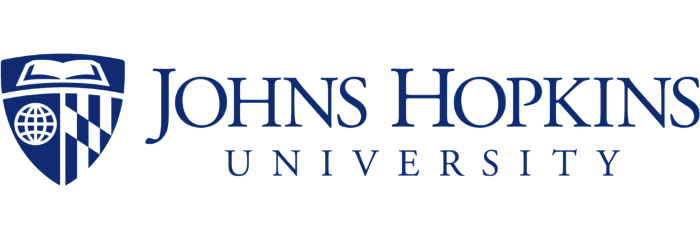
| School | Application Requirements | Credential Prestige | Tuition | Example Topics |
|---|---|---|---|---|
| Bloomberg School of Public Health | Prerequisites vary - many programs require bachelor’s degree | High | $13,266-$26,334 | Adolescent health, clinical trials, environmental and occupational health, public health |
| Carey Business School | Some programs may require bachelor’s degree | High | $24,400 | Investments, financial management |
| Whiting School of Engineering | Bachelor’s or master’s degree, depending on program level | High | $18,380-$22,975 | Graduate level: artificial intelligence, civil engineering, financial risk management Post-master’s: computational mathematics, biomedical engineering, data science |
| School of Education | Undergraduate degree/graduate degree, depending on program level | High | $12,495-$14,494 | Technology integration, school administration, gifted education |
| School of Medicine | Undergraduate degree Related work experience for clinical informatics | High | $21,546 | History of medicine, clinical informatics |
| Zanvyl Krieger School of Arts and Sciences | Undergraduate degree/graduate degree, depending on program level | High | $16,580-$23,375 | Graduate level: nonprofit management, government analytics, science writing Post-master’s: biotechnology enterprise, sequence analysis and genomics |
Known as one of the country’s best medical schools, Johns Hopkins has a long history of excellence in science, public health, engineering, and pre-medical programs. The university has a variety of online programs available across its schools of business, public health, nursing, education, and engineering. Prospective students can see all available online programs and filter by credential type and format in the university’s interactive academic catalog.
The Johns Hopkins Bloomberg School of Public Health offers online certificate programs in environmental and occupational health, public health, patient safety and quality research, clinical trials, and adolescent health. Students must complete all courses within three years and can attend full- or part-time. Most of the Bloomberg School certificate programs require 18 credits, bringing the total cost to $21,546 for a full certificate. Students who take 12 or more academic credits in a term can instead pay a flat rate of $14,364 per term.
The school also offers online certificates in global health practice, global tobacco control, population health management, and spatial analysis for public health through the Online Programs for Applied Learning (OPAL) program. These programs are geared towards working professionals and are offered at a lower rate through the OPAL scholarship. Each program requires 25 credits and takes one to three years to complete.
The Whiting School of Engineering also offers a range of graduate certificates in artificial intelligence, information systems engineering, financial mathematics, civil engineering, and environmental engineering. The application requirements for engineering certificates are somewhat restrictive, including prerequisites such as Java, discrete mathematics or calculus, and data structures for specific programs.
Students who pursue a graduate certificate with the Whiting School have the option to apply their credits to a master’s degree program before they complete their certificate. Each program requires four to five courses and must be completed within three years. Three-credit courses at Whiting cost $4,595 at the graduate level, and total program costs range from $18,380 to $22,975, depending on course requirements.
Takeaway: Johns Hopkins has many different credentials available through the highly regarded schools of engineering, public health, and education. While the certificate programs are a significant financial investment, they seem to offer high-quality training opportunities in highly specialized fields, making the program cost worthwhile for specific career tracks. The selective application process also signals a high caliber of education, meaning credentials may be more widely respected. The programs offered through the OPAL program under the Bloomberg School will likely also be beneficial as they train professionals for emerging sectors that are in need of skilled professionals.